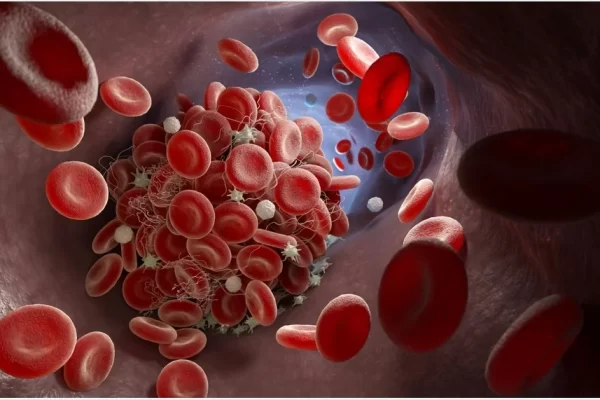Let’s dive straight into the heart of a topic that affects millions of women around the globe – Polycystic Ovary Syndrome (PCOS). This complex condition is often mystifying and can manifest through a myriad of challenging symptoms.
Unpacking the role of hormones in PCOS and PCOS ovary symptoms will shed light on the nature of this health challenge. It also paves the way for more effective management strategies.
So, sit back, grab a cup of tea, and let’s unravel this together.
The Hormonal Imbalance at the Core of PCOS
The ovaries play a central role in female reproductive health. They house and release eggs. They also produce hormones that regulate menstrual cycles and support pregnancy.
In PCOS, hormonal imbalances cause disruptions to these functions. Specifically, higher than normal levels of male hormones and upset the balance of female hormones.
So women need to be conscious of their hormones. They need to be aware of medical treatments and supplemental remedies like the one suggested in this Zestful Health article.
Hormones Involved in PCOS
There are various involved hormones in PCOS, but some are more prominent than others. Here’s a quick overview of the main players and their respective roles:
Estrogen
Estrogen is more than just a single hormone. It’s a group of chemically similar hormones, including estradiol, estrone, and estriol.
Estradiol is the most active form of estrogen and plays a significant role during the reproductive years. It is also integral to other bodily systems. It plays a role in regulating mood, maintaining bone health, and influencing heart health.
However, in the context of PCOS, high estrogen levels can have some undesired effects. When estrogen levels are too high, it can prevent the ovaries from releasing an egg.
Androgens
Androgens, although known as ‘male’ hormones, are present in women as well. In a healthy female body, they help regulate the menstrual cycle and foster the development of eggs within the ovaries. They also contribute to libido and bone strength.
In the context of PCOS, the levels of different types of androgens are significantly elevated. This excess disrupts the regular ovulation cycle. For instance, elevated testosterone can lead to hirsutism, acne, and alopecia.
Insulin
Insulin plays a crucial role in the manifestation and management of PCOS symptoms. In normal bodily function, insulin helps to regulate the metabolism of carbohydrates and fats. It does this by encouraging cells to take in glucose from the bloodstream. This glucose is then used for energy or stored for future use.
Insulin resistance often occurs in women suffering from PCOS. This means that despite the normal levels of insulin in the bloodstream, the body’s cells become resistant to its effects. As a result, glucose is not adequately absorbed, prompting the pancreas to produce even more insulin to compensate.
This overproduction of insulin triggers the ovaries to produce more androgen. Elevated insulin levels and insulin resistance can therefore intensify PCOS ovary complications.
Furthermore, insulin resistance and the increase in insulin levels can also lead to more serious health concerns. This includes Type 2 Diabetes, heart disease, and even endometrial cancer. Hence, maintaining balanced insulin levels and managing insulin resistance is essential.
Progesterone
Progesterone is another hormone that plays a key role in the regular menstrual cycle. It is essential for the maintenance of pregnancy.
Under normal circumstances, progesterone levels rise after ovulation. This prepares the uterus for a potential pregnancy. If pregnancy does not occur, progesterone levels drop, leading to the onset of the menstrual period.
In the case of PCOS, irregular or absent ovulation often results in lower levels of progesterone. This hormonal imbalance can lead to longer, less predictable menstrual cycles.
Luteinizing Hormone (LH) and Follicle-Stimulating Hormone (FSH)
These two hormones are pivotal in the menstrual cycle. FSH stimulates the growth of follicles in the ovaries. LH triggers ovulation.
In women with PCOS, the ratio of LH to FSH is often elevated. This causes the production of too much testosterone which contributes to the symptoms of PCOS.
Understanding PCOS Ovary Symptoms
PCOS symptoms vary from woman to woman and can change over time. Some women may experience only one or two symptoms, while others may experience a combination. The severity of the symptoms can also differ from person to person.
Irregular or Absent Periods
As mentioned earlier, irregular or absent periods are a hallmark symptom of PCOS. This is due to the hormonal imbalances affecting ovulation and menstruation.
Ovarian Cysts
Contrary to what the name suggests, not all women with PCOS have ovarian cysts. However, for those who do, these small fluid-filled sacs on the ovaries can cause discomfort and pain.
Hirsutism
Hirsutism refers to excessive hair growth in areas where men typically grow hair, such as the face, chest, and back. This is caused by increased levels of androgens.
Acne
Elevated levels of male hormones can also contribute to acne breakouts on the face, chest, and back. But it’s not just your typical teenage acne.
Instead, PCOS-related acne is often more severe and stubborn. It’s characterized by deep, painful, inflamed pimples. And it can be resistant to treatments that would typically work on mild to moderate acne.
Hair Loss
Unlike male pattern baldness, women with PCOS often experience a general thinning of hair across the scalp. The hair growth cycle is disrupted by hormonal imbalances, leading to increased hair fall and slower regrowth.
The severity and pattern of hair loss can vary significantly between individuals. Some may notice a gradual thinning over many years. Others may experience a more noticeable reduction in hair volume in a shorter time frame.
Weight Gain / Difficulty Losing Weight
Insulin resistance can contribute to weight gain in women with PCOS, making it more challenging to lose weight. This is often accompanied by other metabolic issues such as high cholesterol and high blood pressure.
The Ties of PCOS Ovary Symptoms to Hormonal Imbalances
Living with PCOS ovary symptoms can be challenging. It’s a complex condition that requires a nuanced understanding of hormonal interactions within the body.
However, remember that PCOS is a common condition, and you are not alone. Millions of women around the world are navigating this journey. They are finding ways to manage their symptoms successfully.
The most important thing to note is that while there isn’t a one-size-fits-all solution. Adjustments in lifestyle, diet, and exercise, alongside medical interventions, can make a difference.
Did you find this article helpful? If so, check out the rest of our site for more.





